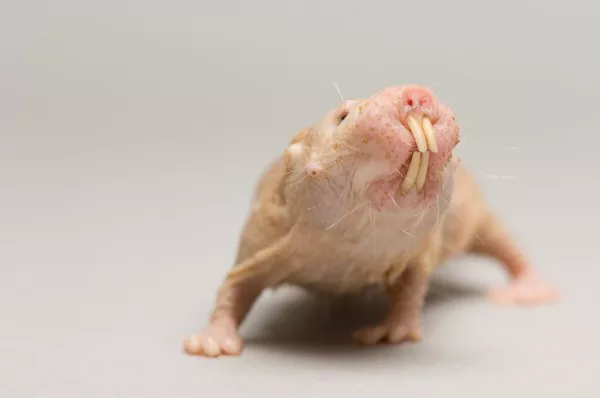Adaptability is a crucial trait for survival in the animal kingdom. It allows species to thrive in diverse environments, adjust to changes, and exploit various resources. This article explores ten of the most adaptable animals, highlighting their remarkable abilities and the strategies they employ to survive and prosper in different habitats.
10 Most Adaptable Animals
1. Cockroaches
Overview
Cockroaches are often cited as one of the most adaptable creatures on the planet. These insects have been around for over 300 million years, surviving drastic changes in the Earth’s climate and environment.
Adaptability Traits
- Resilience to Radiation: Cockroaches can withstand high levels of radiation, much higher than what humans can endure.
- Diet Flexibility: They can eat a wide range of organic materials, including decaying matter, glue, soap, and even hair.
- Habitat Versatility: Cockroaches can thrive in almost any environment, from tropical rainforests to human homes.
See Also: Top 10 Cutest Animals in the World
2. Rats
Overview
Rats are known for their incredible adaptability and have successfully colonized every continent except Antarctica. They are particularly notorious for living in close proximity to humans.
Adaptability Traits
- Omnivorous Diet: Rats can eat almost anything, including grains, fruits, meat, and garbage.
- High Reproductive Rate: They breed rapidly, with females capable of producing several litters per year.
- Habitat Versatility: Rats can live in urban environments, rural areas, and even sewers.
3. Pigeons
Overview
Pigeons, also known as rock doves, are highly adaptable birds that have become ubiquitous in urban environments around the world.
Adaptability Traits
- Urban Survival: Pigeons thrive in cities, using buildings as nesting sites and feeding on a wide range of food sources, including discarded human food.
- Navigation Skills: They have an excellent sense of direction and can find their way home from long distances.
- Breeding Adaptability: Pigeons breed year-round and have a short incubation period.
4. Crows
Overview
Crows are highly intelligent birds known for their problem-solving skills and adaptability to various environments.
Adaptability Traits
- Tool Use: Crows are known to use tools to obtain food, demonstrating advanced cognitive abilities.
- Diet Flexibility: They have an omnivorous diet, feeding on insects, fruits, seeds, and even human trash.
- Habitat Versatility: Crows can live in forests, farmlands, and urban areas.
5. Coyotes
Overview
Coyotes are highly adaptable canids found throughout North and Central America. They have expanded their range significantly due to their adaptability.
Adaptability Traits
- Diet Flexibility: Coyotes are opportunistic feeders, eating anything from small mammals and birds to fruits and garbage.
- Habitat Versatility: They thrive in diverse habitats, including deserts, forests, grasslands, and urban areas.
- Behavioral Adaptability: Coyotes can alter their behavior to avoid humans, becoming more nocturnal in urban areas.
6. Octopuses
Overview
Octopuses are known for their intelligence and ability to adapt to various marine environments, from coral reefs to the deep sea.
Adaptability Traits
- Camouflage: Octopuses can change their color and texture to blend in with their surroundings, avoiding predators and ambushing prey.
- Problem-Solving Skills: They demonstrate remarkable problem-solving abilities, such as opening jars to obtain food.
- Escape Artists: Octopuses can squeeze through tiny openings and are known for their ability to escape from enclosures.
7. Ants
Overview
Ants are highly adaptable insects found in nearly every terrestrial environment on Earth. Their social structure and cooperative behavior contribute to their success.
Adaptability Traits
- Colony Structure: Ants live in complex colonies with a clear division of labor, enhancing their ability to exploit resources.
- Diet Flexibility: They feed on a variety of substances, including nectar, seeds, insects, and fungi.
- Habitat Versatility: Ants can thrive in forests, grasslands, deserts, and urban environments.
8. Cats
Overview
Domestic cats and their wild relatives are highly adaptable animals capable of surviving in diverse environments.
Adaptability Traits
- Hunting Skills: Cats are skilled hunters, capable of catching a wide range of prey, from insects to small mammals.
- Independent Nature: They can live independently or as part of a social group, adapting their behavior to the availability of resources.
- Habitat Versatility: Cats can live in urban areas, rural environments, and various natural habitats.
9. Humans
Overview
Humans are arguably the most adaptable species on Earth, having colonized every continent and developed advanced technologies to survive in extreme conditions.
Adaptability Traits
- Technological Innovation: Humans create tools and technologies to adapt to different environments, from arctic tundras to deserts.
- Diet Flexibility: Humans have a highly varied diet and can consume a wide range of foods.
- Cultural Adaptation: Human societies develop cultures and social structures that enable them to thrive in diverse environments.
10. Dolphins
Overview
Dolphins are highly intelligent marine mammals known for their adaptability to different marine environments and their complex social structures.
Adaptability Traits
- Social Structure: Dolphins live in complex social groups, which helps them hunt and protect themselves.
- Echolocation: They use echolocation to navigate and find food in murky waters.
- Diet Flexibility: Dolphins feed on a variety of marine life, including fish, squid, and crustaceans.
See Also: Top 10 Most Helpful Animals in the World
Conclusion
Adaptability is a key factor in the survival and success of species in the animal kingdom. The ten animals highlighted in this article demonstrate remarkable abilities to adjust to diverse and changing environments, ensuring their continued existence despite challenges. From the resilience of cockroaches to the problem-solving skills of octopuses, these adaptable animals provide fascinating insights into the strategies and behaviors that enable them to thrive across the globe.
You Might Be Interested In:

























